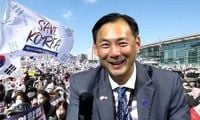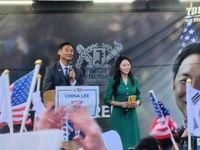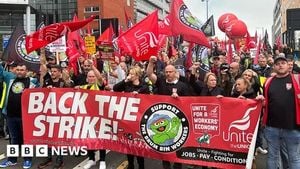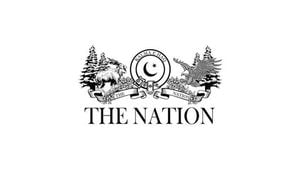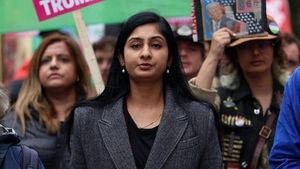Morse Tan, a professor at Liberty University and former US Ambassador-at-Large for International Religious Freedom under the Trump administration, has stirred controversy in South Korea by advancing conspiracy theories about the country’s 2022 presidential election and making unsubstantiated claims about President Lee Jae-myung’s youth. Arriving in South Korea on July 14, 2025, Tan’s visit quickly became a flashpoint for political and social tensions, culminating in police investigations, event cancellations, protests, and a rare meeting with former President Yoon Suk-yeol, currently detained.
Tan’s most incendiary allegation centers on President Lee, whom he accused of involvement in a violent crime during his teenage years, claiming that Lee was incarcerated in a juvenile reformatory and unable to attend middle or high school as a result. These claims first surfaced publicly at a June 2025 press conference in Washington D.C., hosted by the so-called International Election Monitoring Group, where Tan asserted that Lee had been implicated in the group sexual assault and murder of a young girl. Such accusations, however, have been widely discredited and labeled false by courts and prosecutors in South Korea.
In response to these allegations, the civic group Free Korea Alliance filed a formal complaint accusing Tan of defamation through the dissemination of false information. The Seoul Metropolitan Police Agency’s Cyber Investigation Unit has since taken up the case, actively investigating the claims and their impact. According to police sources, the complaint highlights that Tan’s statements have no factual basis and have caused significant reputational harm to President Lee.
Despite the mounting legal scrutiny, Tan remained defiant. On July 15, 2025, after Seoul National University canceled his scheduled special lecture at the Hoam Faculty House — an event hosted by the conservative group Truth Forum — Tan relocated the event to the university’s main gate. There, in front of a crowd, he defended former President Yoon Suk-yeol’s controversial emergency proclamation, asserting that Yoon had foreseen the influence of the Chinese Communist Party and North Korea in manipulating elections. Tan claimed, "All leaders who want to dedicate themselves to saving the Republic of Korea are currently in darkness, and former President Yoon is one such person." He added that Yoon “stood up for the citizens of the Republic of Korea and tried to collect evidence of election fraud through an emergency proclamation.”
Tan’s public appearances have been met with fierce opposition. The Korea Constitutional Law Society abruptly canceled a planned “Election Fraud Report Meeting” that was to feature Tan as a speaker, and Seoul City withdrew its invitation for him to serve as a keynote speaker at the 2025 North Korean Human Rights Seoul Forum. Furthermore, a protest rally was scheduled for July 17, 2025, outside a church in Eunpyeong-gu, Seoul — the location of another planned lecture by Tan. Local Democratic Party lawmaker Park Ju-min voiced concerns about public safety, emphasizing that the event’s cancellation was necessary to prevent potential clashes among citizens.
Tan’s rhetoric is heavily laced with religious overtones. On a July 16, 2025 broadcast on the far-right YouTube channel “Lee Bong-gyu TV,” he refused to disclose the evidence supporting his claims about President Lee, stating, “It is right to keep all secured evidence confidential for now,” and that “Korean citizens have already collected many testimonials and actual evidence.” The term “testimonials” here refers to religious testimonies common in Protestant communities, highlighting Tan’s evangelical Christian background. Upon his arrival in South Korea, Tan declared that he came because he received a “revelation from God to save the Republic of Korea,” underscoring the religious fervor underpinning his activism.
Political figures have responded strongly to Tan’s activities. Democratic Party lawmaker Park Chan-dae condemned Tan on Facebook, accusing him of slandering a democratically elected president and undermining the legitimacy of constitutional institutions. Park described Tan’s actions as “a challenge to the constitutional order” and “clear foreign political activity,” calling for immediate cessation of his activities and deportation if he refuses to comply.
Adding to the controversy, Tan was scheduled to meet with former President Yoon Suk-yeol, who is currently detained in Seoul Detention Center. The meeting, requested by Tan’s side, took place on July 16, 2025, at 4:20 PM and lasted approximately ten minutes. This encounter drew attention because Yoon, despite his legal troubles, has been a figurehead for conservative factions that support Tan’s election fraud theories.
Tan’s presence in South Korea has sparked a broader debate about foreign interference, freedom of speech, and the spread of misinformation. His claims about Chinese interference in South Korea’s elections and the criminal background of President Lee have been widely rejected by mainstream political and legal institutions. Yet, his ability to attract audiences, even amid cancellations and protests, reveals the deep divisions and mistrust present in South Korean society today.
As investigations continue and political tensions simmer, the question remains how South Korea will navigate the challenges posed by foreign actors like Morse Tan who seek to influence domestic affairs with controversial and unverified claims. The unfolding events underscore the delicate balance between protecting democratic institutions and managing the complex realities of globalized information flows.
